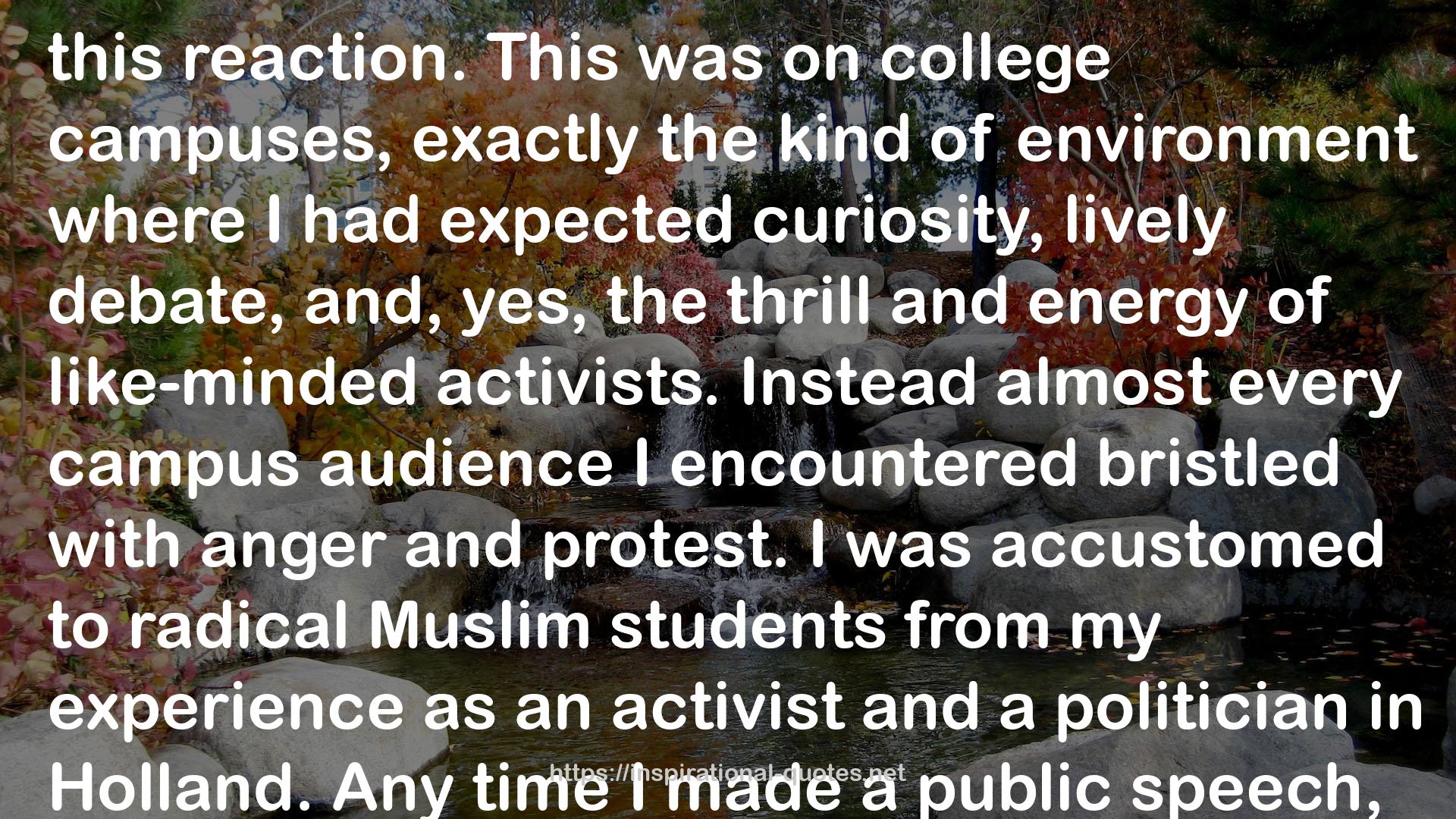" this reaction. This was on college campuses, exactly the kind of environment where I had expected curiosity, lively debate, and, yes, the thrill and energy of like-minded activists. Instead almost every campus audience I encountered bristled with anger and protest. I was accustomed to radical Muslim students from my experience as an activist and a politician in Holland. Any time I made a public speech, they would swarm to it in order to shout at me and rant in broken Dutch, in sentences so fractured you wondered how they qualified as students at all. On college campuses in the United States and Canada, by contrast, young and highly articulate people from the Muslim student associations would simply take over the debate. They would send e-mails of protest to the organizers beforehand, such as one (sent by a divinity student at Harvard) that protested that I did not “address anything of substance that actually affects Muslim women’s lives” and that I merely wanted to “trash” Islam. They would stick up posters and hand out pamphlets at the auditorium. Before I’d even stopped speaking they’d be lining up for the microphone, elbowing away all non-Muslims. They spoke in perfect English; they were mostly very well-mannered; and they appeared far better assimilated than their European immigrant counterparts. There were far fewer bearded young men in robes short enough to show their ankles, aping the tradition that says the Prophet’s companions dressed this way out of humility, and fewer girls in hideous black veils. In the United States a radical Muslim student might have a little goatee; a girl may wear a light, attractive headscarf. Their whole demeanor was far less threatening, but they were omnipresent. Some of them would begin by saying how sorry they were for all my terrible suffering, but they would then add that these so-called traumas of mine were aberrant, a “cultural thing,” nothing to do with Islam. In blaming Islam for the oppression of women, they said, I was vilifying them personally, as Muslims. I had failed to understand that Islam is a religion of peace, that the Prophet treated women very well. Several times I was informed that attacking Islam only serves the purpose of something called “colonial feminism,” which in itself was allegedly a pretext for the war on terror and the evil designs of the U.S. government. I was invited to one college to speak as part of a series of "
― Ayaan Hirsi Ali , Nomad: From Islam to America: A Personal Journey Through the Clash of Civilizations
